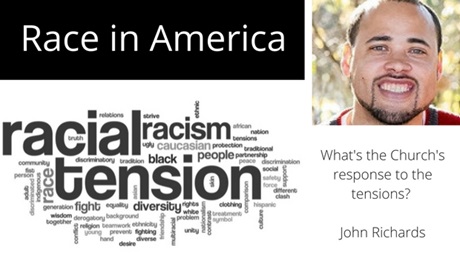Managing Director of the Billy Graham Center for Evangelism

Last week, I binge watched (apparently, that’s a thing) Marvel’s Luke Cage on Netflix. Based in Harlem, the show is unapologetically black and unapologetically political. One article in Time calls it the “most political superhero show yet.” It pulls no social punches, addressing everything from urban policing to Harlem’s gentrification. Black men aren't typically seen as superheroes these days. For 13 episodes, I finally found one. To be candid, it was just what I needed to see—a bulletproof, hoodie-wearing, Black man with a heart for his city.
For some, the humanness of the Black community is under attack. Utter the words "black lives matter" in a room and watch things become awkward faster than a Usain Bolt 100-meter dash time. Race has joined the ranks of religion and politics as topics to avoid discussing in social settings.
We hear about the social implications of the racial tension over the past year, but what about the ecclesiological implications? What does this tension mean for the Church? How can the Church engage these issues well?
The Silent Majority
When racial incidents occur, there are times when Black brothers and sisters nationwide lament our evangelical family’s silence. We hear the response: "We're just waiting to hear all of the facts." I understand the reservation, but I believe that Jesus’ Church doesn’t have to wait for all the facts to express heartbreak.
While it is true that scripture says we are to be slow to speak, we should be quick to mourn—and quick to mourn with those who mourn (see Romans 12:15).
When your brothers and sisters mourn, you'd do well to join them. Send a text. Make a call. Whatever medium you …


